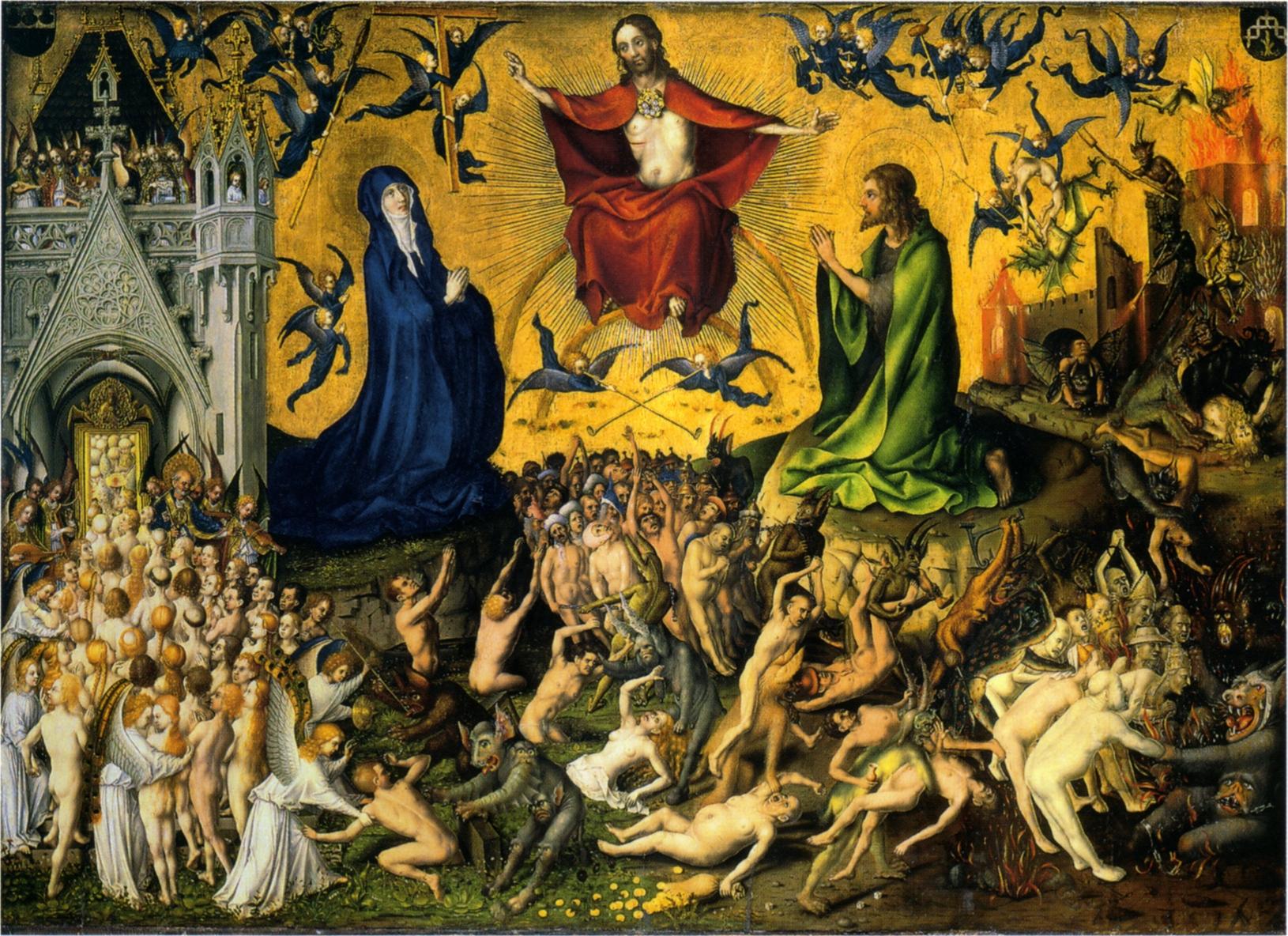
Stephen
Terry, Director

The
Return of Our Lord Jesus
Commentary
for the June 30, 2018 Sabbath School Lesson
 “For the Lord himself will come down from heaven, with a loud
command, with the voice of the archangel and with the trumpet call of God, and
the dead in Christ will rise first. After that, we who are still alive and are
left will be caught up together with them in the clouds to meet the Lord in the
air. And so we will be with the Lord forever. Therefore encourage one another
with these words.” 1 Thessalonians 4:16-18, NIV
“For the Lord himself will come down from heaven, with a loud
command, with the voice of the archangel and with the trumpet call of God, and
the dead in Christ will rise first. After that, we who are still alive and are
left will be caught up together with them in the clouds to meet the Lord in the
air. And so we will be with the Lord forever. Therefore encourage one another
with these words.” 1 Thessalonians 4:16-18, NIV
In the words of Shakespeare’s “Macbeth,”
the title character states “Life's but a walking shadow, a poor player that
struts and frets his hour upon the stage, and then is heard no more: it is a
tale told by an idiot, full of sound and fury, signifying nothing.”[i] If that
were the case, it would argue for us all to be intractable nihilists. But is life
truly like that. We begin life knowing nothing but our own needs and soon learn
that we can manipulate others into supplying those needs, whether the need is
for clean diapers, food and drink to satisy our hunger and thirst, or clothing
and blankets to keep us from the cold. As we grow older, we learn that these
things have intrinsic value, and people are expected to work to obtain them.
While a few prefer to remain in the stage in life where they prefer to
manipulate others into providing those things, most join with all those who
have gone before and harness themselves to share the workload and enjoy the
commensurate rewards. Some do this by following existing career paths, while
others will blaze a new trail based on their singular vision of success.
Depending on the choices made, some will eke out an existence, while a rare few
will find bountiful rewards resulting from their chosen path. However, most
fall somewhere between those two extremes. But there are a few who, early on,
ask themselves, “Is this all there is?”
These individuals may, like Macbeth,
lean toward nihilism, but they may also reject that perspective and replace it
with a search for something deeper. For these, the ultimate question about life
is “Why?” Many are conditioned from childhood to simply accept the answer, “Because!”
But these individuals will not settle for that, because they know “because” is
not an answer but simply a ploy to avoid the question, something exasperated
parents say to children who have asked “Why?” too often. But the mere fact that
such a word as “because” exists is evidence that there is something deeper not
readily understood. It implies that life is inherently more profound than simply
being born, followed by a lot of eating and drinking, some procreation to continue
the process for another generation, and then death. Are we to be little more
than salmon swiimming upstream to spawn and die? Our intellect alone argues
against it. For what need are quadratic equations if we are only here to pass
on our genetic material and expire?
I pondered these things as a young man.
Perhaps this was the result of involvement in the senseless war in Southeast
Asia that devoured so many young men of my generation. The blood spilled, the
loss of so many lives for goals that were murky at best and for real estate that
was often immediately abandoned once it was claimed. The senselessness of all
that could easily turn a young person’s mind to consider whether or not there
was any purpose at all to our existence. Many of my fellows tuned out or
dropped out and fell into drugs and alchohol, feeling if there was no purpose,
why not do whatever feels good for the short time we are here? King Solomon
repeatedly asks the same thing in Ecclesiastes.[ii] I did
some of those things myself, but that seemed just as senseless to me, and I
could not commit to that as the meaning I needed in life. Some, when faced with
a search for meaning, simply go “meh” and move on, perhaps accepting life as
absurd beyond comprehension so best to ignore it and continue to function. They
refused to let such question paralyze them into motionless apprehension when
there were so many appetites to satiate, so many experiences to revel in.
Truthfully, they may have some great memories to hsare in the nursing home as a
result. But even then, memories eventually die, often with those who hold them.
Once again the question arises, “Is that all there is?”
The only remarkable thing about that
question was that I began asking it at a young age. I have found through spiritual
counseling of the elderly that many eventually get to that point as they draw
clsoer to the end of life, when their bodies will no longer let them do the
things they could once do, when their taste buds will not let them find the
same delight in experiencing food and drink as before, and when hearing
impairment removes even some of the joy from simple conversation. But I sought
answers before all that could drive me to wonder, when it would perhaps be too
late to believe that things could be different.
As a young man, I was a voracious
reader of science fiction. It promised a utopia based on scientific progress, a
place where good people always prospered over challenges and evil through the
use of technology. I wanted to believe that such a world was possible, and I
read to determine how to make it reality. But it always remained fantasy. To be
sure, there were high points like 1969’s lunar landing, but in half a century, we
have not been back since. Perhaps there is more truth to the Flintstomes and
the Jetsons. Whether the ancient past or the distant future, people seem doomed
to continue to be jerks to one another and repeat the same mistakes over and
over. Even the promise of the wildly popular Star Trek series has not been
realized. We cannot even consistently avoid warfare and bring the nations of
this one planet into mutual agreement even on matters of vital interest. How could
we ever expect to create and sustain a United Federation of Planets? It was
precsiely this point that led me to find answers in a source that too few have
considered.
I found in reading the Bible that it
says exactly the same thing that had become clear to me. It revealed that in
spite of mankind’s ability to create vast empires in the past, they all
collapsed. Eventually all ability to consistently cohere escaped them and they
were demolished, never to rise again. The futility of the dreams of kings,
caesers and emperors is that their dreams die with them. Even Rome. lasting over
a millenium, eventually fell, and no empire, despite the claims of Adolf Hitler
and his “thousand year reich,” has ever managed such longevity since. I found all
this in the second chapter of Daniel, where King Nebuchadnezzar had a dream and
an image was shown him that portrayed the future. It showed the succession of
empires and the ultimate destruction of all, but then it showed something more.
It revealed that the future was far from hopeless. The dream showed that
everything would be supplanted by the Kingdom of God which would be established.
The end of all of the earthly kingdoms resulted from the establishment of God’s
Kindom. It was the realization of how correctly this simple vision from 2,500
years ago portrayed what was to come that caused me to examine further the
prophecies of the books of Daniel and Revelation where I found a surprising
harmony with history. This gave me two things. First, it gave me a life-long
love of the study of history, and second, it gave me hope for the future. That
hope became real when I found a message in the Bible that assured me that in
spite of appearances to the contrary, this world was not simply left to
randomly stumble forward without clear purpose. There was and is purpose and
design behind it all. Yes, we live our short lives and die, seemingly
demonstrating the fulitiy of our existence. But the story does not end there.
The Bible tells us that Jesus will return and those who have died will live
again when He returns.
For those who have tended toward
hedonism that may be somewhat disconcerting if their bent in that direction was
because they felt there was no point in practicing restraint since life would
soon be over anyway. How surprsing then to be brought back to life once more.
Even worse, perhaps, to be brought back to life to give an account of one’s
actions before the absentee landlord of the planet. If they lived only to
pleasure themselves when they had opportunity to relieve the want of others
that would be difficult to justify, especially if the Bible not only revealed
that life was not simply a meaningless existence but also advised them that
life does have purpose and the fulfillment of that purpose is intrinsic to
caring for others, including actions speaking to their real needs. The return
that will be filled with joy for those who understood the purpose of life and
the relationship God’s desire for mankind has to that purpose may be terror for
those who refused to consider such a responsibility to others.
The fact that life generally seems
without purpose beyond simple biological procreation argues strongly that the
only purpose that rises above that very basic understanding may be worthy of
consideration. I found that purpose in the Bible, and most aussuredly others can
also.
